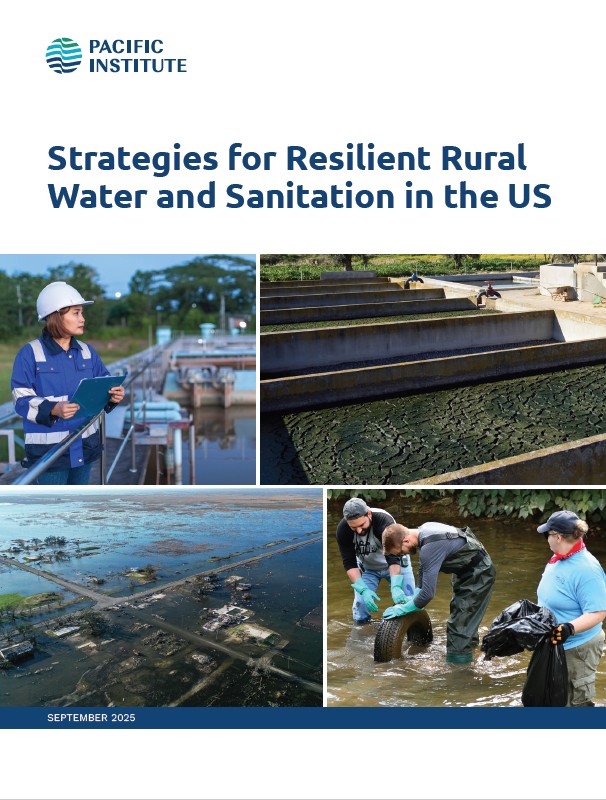Strategies for Resilient Rural Water and Sanitation in the United States

Strategies for Resilient Rural Water and Sanitation in the United States
Overview
Many rural communities across the United States face persistent challenges in accessing safe, affordable, and reliable water and sanitation. Climate change is worsening these already serious challenges. This report brings a rural focus to our previous report, Achieving Equitable, Climate-Resilient Water and Sanitation for Frontline Communities: Water, Sanitation, and Climate Change in the United States. It provides strategies and real-world examples of equitable, climate-resilient rural water and sanitation. In doing so, it highlights the unique characteristics, challenges, and opportunities of rural communities.
Developed in collaboration with the Livelihoods Knowledge Exchange Network (LiKEN), rural communities, and rural technical assistance providers, the report outlines over 130 actionable strategies and approaches. These are designed for rural communities across the United States to strengthen the climate resilience of water and sanitation systems.
Key Messages
- Many rural water and sanitation systems experience distinct and growing climate-related risks that are often intensified by factors like geographic isolation, limited capacity, chronic underinvestment, and aging infrastructure. This underscores the urgent need for equitable, climate-resilient strategies designed specifically for rural communities.
- Rural communities across the US are advancing creative, locally driven approaches to secure safe, affordable, equitable, and climate-resilient water and sanitation services. This report presents 37 attributes of equitable, climate-resilient rural water and sanitation along with over 130 actionable strategies for rural communities in the US.
- Water and sanitation strategies that are led by rural communities and build on local assets can play a powerful role in strengthening climate resilience. The strategies in this report reflect the diverse contexts and insights of rural water and sanitation practitioners who understand both the challenges and strengths in rural settings.
- Many accessible online resources, including toolkits, guides, and trainings, exist to support rural communities and their supporters to build the climate resilience of their water and sanitation systems.
- Adequate, accessible funding for adapting rural water and sanitation systems to climate change remains a major challenge. Some state and local governments offer innovative and sustainable funding opportunities for rural climate resilience into the future.
Additional Resources
- Press release
- Water and Climate Equity in Rural Water Systems in the United States
- Achieving Equitable, Climate-Resilient Water and Sanitation for Frontline Communities: Water, Sanitation, and Climate Change in the United States
- Blog: The Growing Threat of Catastrophic Flooding in Rural America
- Webinar: Achieving Equitable, Climate-Resilient Water and Sanitation for Frontline Communities
- WaterNow Alliance Webinar: Building Resilience in Rural Water Systems (Part 1)
- WaterNow Alliance Webinar: Building Resilience in Rural Water Systems (Part 2)
- Blog: The Climate Crisis is a WASH Crisis

